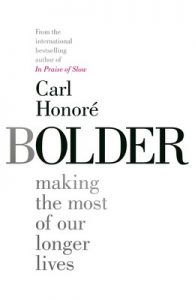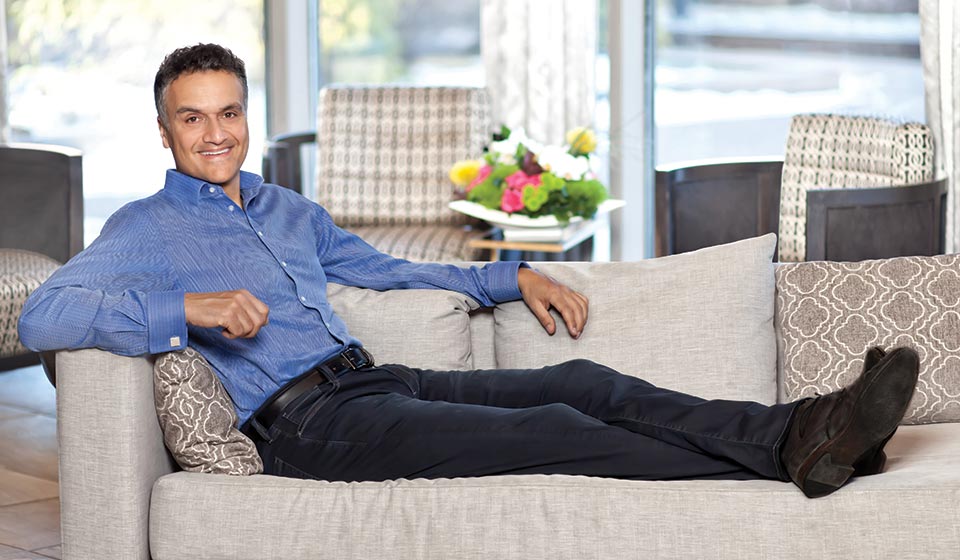Carl Honoré is approaching his 50th birthday with trepidation. He’s worried about what happens on the other side and this sets the background for Bolder.
This context is worth remembering as you read Bolder. Honoré’s exploration of ageing is a self-confessed part of his own education and need for ‘reassurance’. Compared to many members and followers of AOA, who’ve been splashing about in middle age for a while, he appears at times to be an ingénue: he is genuinely surprised and shocked by attitudes to age.
Reading Bolder is like following an explorer in ageing Disneyland, a place that proves to be a personal roller coaster ride for the author. He finds many positives about ageing that are backed up by researchers and academics, but occasionally, usually when you start feeling good about being whatever age you are, he steps on a spike and it’s like getting the snake in Snakes and Ladders.

One moment he is laughing with Spanish grannies on a graffiti workshop, the next he brought quickly down to earth by a young female observer who tells him she wouldn’t put them on her Instagram because ‘old people aren’t that attractive.’ There are his descriptions of a Lebanese television show where over eighties play pranks at pharmacies asking for Viagra, a show that has become extremely popular and produced its own media stars.
And the same thing happens: he begins to wonder about that slender line that separates something sweet and charming from being a circus in which the aged are targets of the wrong kind of laughter. These elements in the book are the ones that made the headlines in mainstream reviews, i.e. The Guardian. While I understand how the media works, I’m not convinced that ageing, which the author describes as a game for ‘losers’, needs to be a circus.
There is much that is positive about ageing here: cognitively we are better at learning and picking up new things in middle age. In a study of IT professionals, those who were in their fifties were far more relaxed about new technologies and ready to take them on than their younger counterparts. Our experience curve gives us an advantage in making fast connections in our brain, something Don and Patricia Edgar have written about in Peak – Reinventing Middle Age. The reality is that given good health – and enough money, there are no cognitive, intellectual or social reasons why older people shouldn’t be able to continue to be the person they are. And more.
At the same time we are up against a culture that bows to youth and beauty, where social media rules the cultural narrative, and the good life is associated with the unlined and pretty.
Despite the stylish older media stars and the author’s examples of celebrities baring their wrinkles and appearing in ads, they are celebrities that means they get a very special pass that the rest of us don’t get. I wisely skimmed his section celebrating celebrities and grey hair: wild curly hair will never look good grey and I don’t intend to give it another passing thought. Not caring is a big advantage of age.




